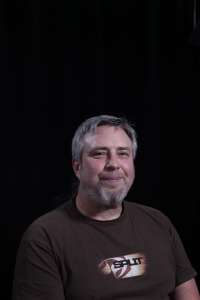They told us we have to watch out for the opposition and especially for Havel
František Janačík was born on June 1st 1969 in Albury, New South Wales, Australia. His parents emigrated to Australia after the Soviet occupation of Czechoslovakia in 1968. A year after František was born, his mother gave birth to his sister. In 1973, the family came back to Czechoslovakia. After three years, his parents divorced. His father, František, started to work at the uranium mine in Dolní Rožínka. His mother, Eva, began to work at a glass factory in Nový Bor. The witness and his sister had been living with their mother and her parents in Nový Bor. František had to learn speak Czech and mastered the language as a seven-years-old. After finishing elementary school he began to study at a gymnasium type secondary school in Teplice. As the son of emigrants he had been struggling to finish the school, taking his leaving exams as late as in 1988, however, he wasn´t admitted to university. For some time, he was an office worker at the district cultural centre, then he did a blue-collar job at a porcelain factory in Bohosudov. In October 1988, he started his compulsory military service, spending most of it at an airfield in Hradec Králové. There he witnessed the Velvet Revolution as well as the complicated transformation of the army under the new, free conditions. After 1990, he has been working as an editor at the Czech Radio in Ústí nad Labem. In 2019, he has been living in Teplice.
